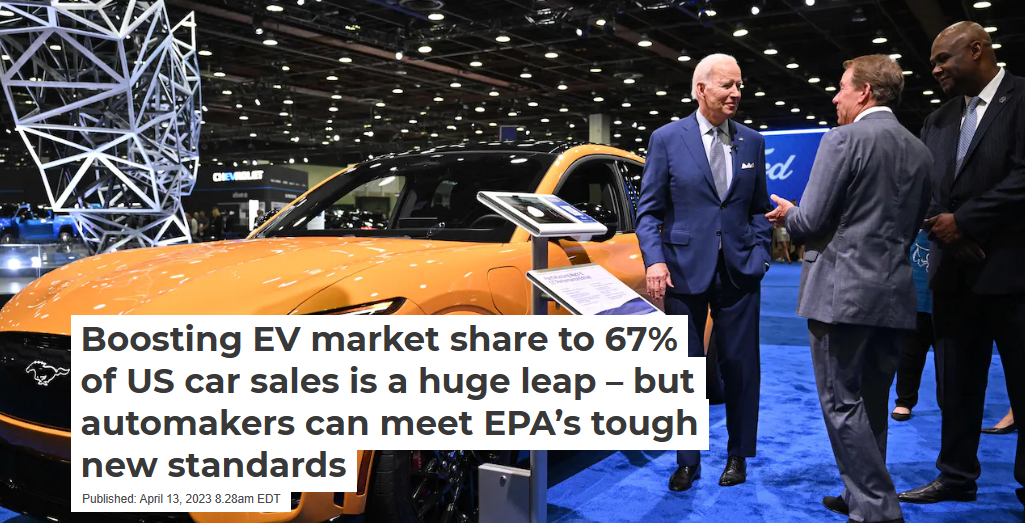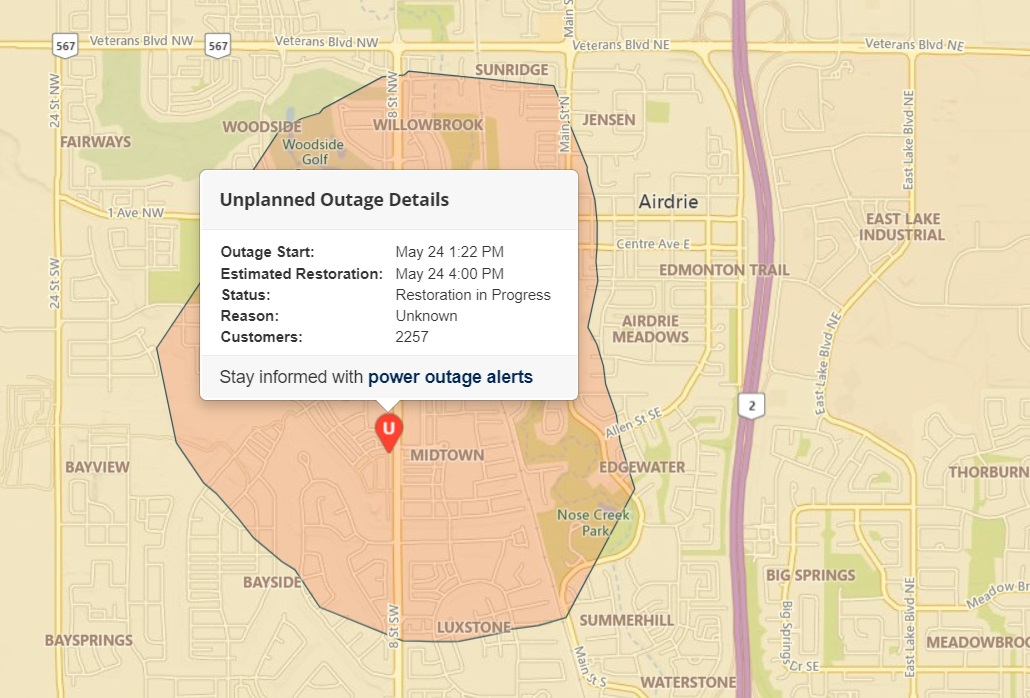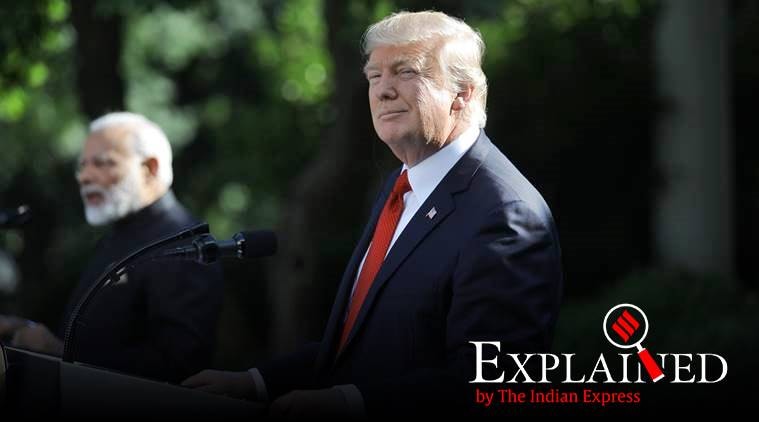Auto Dealers Push Back Against Mandatory EV Sales Targets

Table of Contents
Financial Hurdles and Infrastructure Deficiencies
One of the primary concerns raised by auto dealers is the substantial financial burden associated with complying with mandatory EV sales targets. Adapting to the new EV landscape requires significant upfront investment, placing a considerable strain on dealerships, particularly smaller ones. The financial hurdles include:
- Upgrading facilities: Installing the necessary EV charging infrastructure, including fast chargers and potentially specialized maintenance bays, represents a considerable capital expenditure. This is especially challenging for dealerships located in areas with limited access to electricity grids or high installation costs.
- Staff training: Dealerships need to invest in training their sales and service teams on EV technology, maintenance, and battery management. This requires dedicated training programs and ongoing professional development.
- Inventory management: Handling EV inventory presents unique challenges. EVs often require specialized handling and storage, and the complexity of their components can increase maintenance costs and training needs. The longer lead times for EV deliveries compared to gasoline vehicles also add to the complexity.
- Limited government support: Many dealers report a lack of adequate government support or incentives to offset the high costs of upgrading their facilities and training their staff. The return on investment (ROI) for these upgrades remains uncertain, especially in areas with lower EV adoption rates.
- Profitability concerns: The higher initial cost of EVs and their potentially lower profit margins compared to gasoline-powered vehicles are major concerns for dealerships struggling to balance their investments with their profitability.
Consumer Demand and Market Readiness
While governments are pushing for rapid EV adoption, auto dealers argue that current consumer demand doesn't justify the stringent mandatory EV sales targets. Several factors contribute to this disparity:
- Range anxiety and charging infrastructure: Many potential EV buyers remain hesitant due to concerns about limited range and the availability of public charging stations, especially in rural areas. The lack of widespread and reliable charging infrastructure significantly hampers consumer confidence.
- High upfront costs: The initial purchase price of EVs remains significantly higher than comparable gasoline-powered vehicles, making them inaccessible to a large segment of the population. This price difference needs to be addressed to encourage broader adoption.
- Lack of public awareness: Many consumers still lack a clear understanding of EV technology, maintenance requirements, and overall cost of ownership. Improved public education and awareness campaigns are vital to overcoming this barrier.
- Varying consumer needs: Consumer preferences and needs vary greatly based on location, lifestyle, and driving habits. Mandated targets fail to account for this diversity and may impose unrealistic expectations on certain regions or demographics.
Government Regulation and Policy Concerns
Dealers also express concerns about the government's approach to regulating mandatory EV sales. These concerns extend beyond the financial aspects and include:
- Lack of flexibility: The rigid nature of many mandates leaves little room for adaptation based on local market conditions and consumer demand. A more flexible approach might be more effective.
- Unfair competition: Dealers worry that the mandates could create unfair competition, particularly disadvantaging smaller dealerships or those located in areas with lower EV adoption rates.
- Impact on rural communities: The challenges of implementing EV infrastructure in rural areas are significant, potentially harming dealerships in these communities disproportionately.
- Lobbying efforts: The automotive industry is actively lobbying for alternative solutions that address the concerns raised by dealers, proposing more nuanced and market-driven approaches to EV adoption.
Alternative Solutions and Industry Proposals
Instead of rigid mandates, the automotive industry suggests various alternative approaches to accelerate EV adoption while minimizing disruption:
- Increased government incentives: Substantial consumer incentives, such as tax credits and rebates, could significantly stimulate demand for EVs. Simultaneously, incentives for EV infrastructure development would alleviate the charging infrastructure bottleneck.
- Phased implementation: A phased rollout of EV mandates, allowing for a gradual transition, would give dealers more time to adapt and address the challenges of EV adoption.
- Industry-government collaboration: Stronger collaboration between governments and the automotive industry could lead to more effective strategies tailored to specific market conditions and consumer needs. This could include joint investment in charging infrastructure and public awareness campaigns.
- Focus on consumer education: Targeted campaigns designed to educate consumers about the benefits of EVs, dispel myths, and address concerns related to range and charging infrastructure would significantly boost consumer confidence.
Conclusion
The pushback from auto dealers against mandatory EV sales targets reflects legitimate concerns about the financial burdens, market readiness, and regulatory implications of these mandates. While the transition to electric vehicles is crucial for environmental sustainability, a balanced approach is necessary. This approach should consider the practical challenges faced by the automotive industry and promote EV adoption through a combination of incentives, improved infrastructure, and effective consumer education, rather than relying solely on potentially disruptive mandates. The ongoing debate surrounding mandatory EV sales targets will continue to shape the future of the automotive landscape, and understanding all sides of the argument is critical for navigating this significant transition. To learn more about the complexities of this issue, explore further resources on mandatory electric vehicle sales targets and their multifaceted impact on the automotive industry.

Featured Posts
-
 Us Army Embraces Right To Repair A New Era For Military Equipment Maintenance
May 18, 2025
Us Army Embraces Right To Repair A New Era For Military Equipment Maintenance
May 18, 2025 -
 Confortos Path To Dodger Blue Can He Mirror Hernandezs Impact
May 18, 2025
Confortos Path To Dodger Blue Can He Mirror Hernandezs Impact
May 18, 2025 -
 Reddit Outage Global Issues Impacting Thousands
May 18, 2025
Reddit Outage Global Issues Impacting Thousands
May 18, 2025 -
 India Offered Us Tariff Cuts Trump Says But Hes Not In A Hurry
May 18, 2025
India Offered Us Tariff Cuts Trump Says But Hes Not In A Hurry
May 18, 2025 -
 Snl Controversy Ego Nwodim Sketch Sparks Audience Curses And Backlash
May 18, 2025
Snl Controversy Ego Nwodim Sketch Sparks Audience Curses And Backlash
May 18, 2025
Latest Posts
-
 The Meaning Of Clasp Michelle Williams On Her Dying For Sex Scene With Marcello Hernandez
May 18, 2025
The Meaning Of Clasp Michelle Williams On Her Dying For Sex Scene With Marcello Hernandez
May 18, 2025 -
 Ram Fest 2024 Marcello Hernandezs Side Splitting Performance
May 18, 2025
Ram Fest 2024 Marcello Hernandezs Side Splitting Performance
May 18, 2025 -
 Snls Marcello Hernandez A Hilarious Ram Fest Set
May 18, 2025
Snls Marcello Hernandez A Hilarious Ram Fest Set
May 18, 2025 -
 Snl Cold Open Parodies The Senators Who Couldnt Text
May 18, 2025
Snl Cold Open Parodies The Senators Who Couldnt Text
May 18, 2025 -
 Michelle Williams And Marcello Hernandez Unresolved Mystery Surrounding Dying For Sex Scene
May 18, 2025
Michelle Williams And Marcello Hernandez Unresolved Mystery Surrounding Dying For Sex Scene
May 18, 2025
